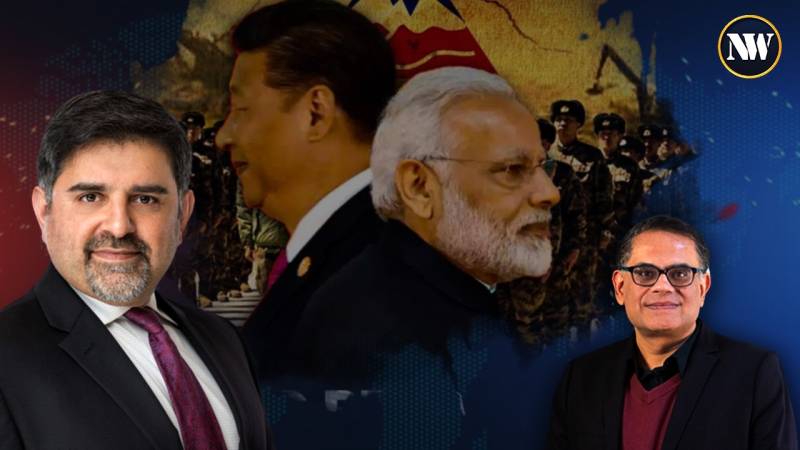In a recent interview with Kamran Bokhari, Senior Director at the New Lines Institute in Washington, D.C., we gained valuable insights into the complex web of global geopolitics, particularly in the context of the escalating tensions between India and China. This discussion also delved into India's economic ambitions and its role in the shifting global power dynamics.
The interview commenced with a critical analysis of the escalating tensions between two of the world's most populous nations, India and China. Recent developments, including the Galwan Valley incident in 2020 and subsequent border disputes, have thrust this regional rivalry into the global spotlight.
Kamran Bokhari offered a comprehensive view of China's strategic challenges to India, highlighting its attempts to prevent India from focusing on its economic development and maritime capabilities. This strategic maneuvering has direct implications for the broader regional dynamics, especially concerning India's partnerships with other global powers.
A significant portion of the interview centered on India's remarkable economic growth, positioning it as the world's fifth-largest economy. However, Kamran Bokhari cautioned against overstating India's potential to replace China as a global economic power.
While acknowledging India's growth as impressive, Bokhari underscored the monumental gap in economic size and output between the two Asian giants. He also shed light on the hurdles foreign investors face when considering India as a potential market, including political stability and communal tensions. The discussion emphasized the need for India to foster a conducive business environment to attract foreign investments and potentially reduce global dependency on Chinese products.
Pakistan's role in the India-China dynamic emerged as a crucial theme during the interview. Kamran Bokhari noted that Pakistan's vulnerabilities and close relationship with Beijing make it imperative for Islamabad to maintain a balanced relationship with both India and China. The discussion highlighted the delicate balance Pakistan must strike to safeguard its interests amid these regional tensions. While Pakistan may want to stay clear of the India-China conflict, external pressures and influence could complicate its stance.
The interview didn't solely focus on the India-China relationship but extended to the broader global power dynamics. Bokhari dispelled the notion of the United States' decline, asserting that it remains the world's superpower. Despite various challenges, including China's rise, the United States continues to play a central role in global geopolitics. The interview emphasized the ongoing rivalry between the United States and China, characterized by economic, political, and strategic competition. Kamran Bokhari underscored the complexity of these relationships and their profound implications for the international system.

